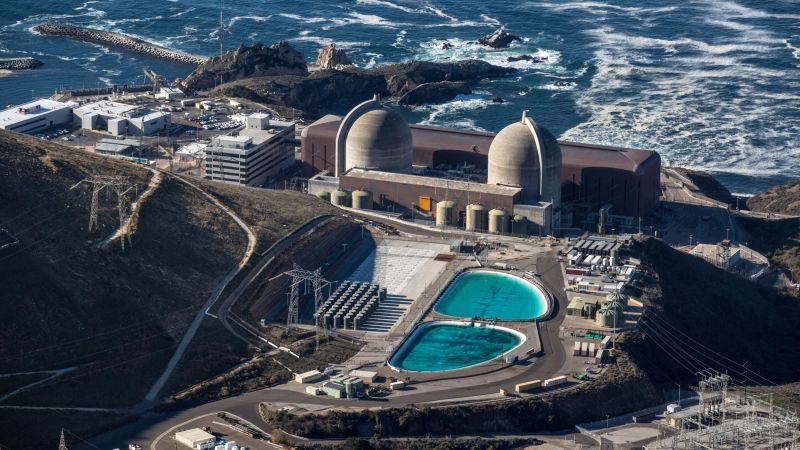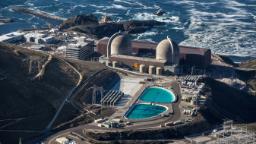

CNN
—
Nuclear energy in California got a jolt of financial support from the Biden administration on Monday as the US Department of Energy awarded a $1.1 billion grant to Pacific Gas & Electric to help extend the life of its Diablo Canyon Power Plant on the central California coast.
The Diablo plant was scheduled to be decommissioned in two phases, one in 2024 and another in 2025, something Gov. Gavin Newsom has worked to avoid as California’s electric grid has been stressed in recent years by intense heat waves and destructive wildfires.
The federal grant doesn’t ensure the plant will stay open beyond 2025, but it “creates a path forward for Diablo Canyon to remain open,” DOE said in a news release.
The conditional grant, pending negotiation and finalization by DOE, is a significant payout from the $1.2 trillion bipartisan infrastructure law which Biden signed last November. The legislation is intended to invest in repairing and modernizing America’s infrastructure, including its roads, bridges, internet and electric grid, among other projects.
Monday’s announcement marks the first funds to be paid out under the law’s Civil Nuclear Credit program, according to the DOE release, which “supports the continued operations of safe and reliable nuclear energy facilities, preserving thousands of good-paying clean energy jobs while avoiding carbon emissions.”
The extension of the plant will save 1,500 jobs, according to the department.
The program “prioritized reactors facing the most imminent threat of closure,” the department said. The second cycle will target reactors projected to shut down for economic reasons in the next four years.
The funding is a windfall not only for PG&E, but also for Newsom, who has pressed for the Diablo plant to stay online to help stabilize the state’s power grid with zero-emissions electricity.
In a sweeping climate and clean energy bill signed by Newsom in September, California state lawmakers voted to keep the Diablo plant open until at least 2030. The limited-term extension of the plant’s license, Newsom said, was “structured to take advantage of the opportunity for federal support.”
Newsom said in a news release the investment “provides an onramp for more clean energy projects to come online.”
“Amid intensifying climate impacts in the West and across the country, California is focused on meeting our bold climate and clean energy goals while tackling the challenges of extreme weather that puts lives at risk and strains our grid,” Newsom said.
According to DOE, Diablo Canyon produces about 15% of the state’s carbon-free energy. More widely, DOE said, nuclear currently provides 50% of the country’s carbon-free electricity, “but shifting energy markets and other economic factors” have forced the closure of 13 commercial nuclear plants since 2013. Those closures have led to more planet-warming emissions and worsening air quality in communities around those former reactors, DOE said.
Secretary of Energy Jennifer Granholm called nuclear the country’s “largest source of clean electricity,” adding that “nuclear energy will help us meet President Biden’s climate goals.”
President Joe Biden has set a goal to cut the country’s planet-warming emissions in half by the end of the decade.
Some environmental groups have opposed keeping the nuclear plant open, arguing it will be too costly and could have significant environmental impacts.
Continuing to operate the plant beyond its previously planned 2025 close date “exposes the surrounding communities and environment to serious risk while costing taxpayers and ratepayers potentially billions of dollars,” Friends of the Earth president Erich Pica said in a statement when the California climate bill was passed.
Yet other groups cheered the bill’s passage.
Clean Air Task Force president Armond Cohen called the nuclear plant’s continued operation “a win for climate action, a win for California, and a win for the broader effort to reckon with the realities of decarbonization and grid resilience.”
